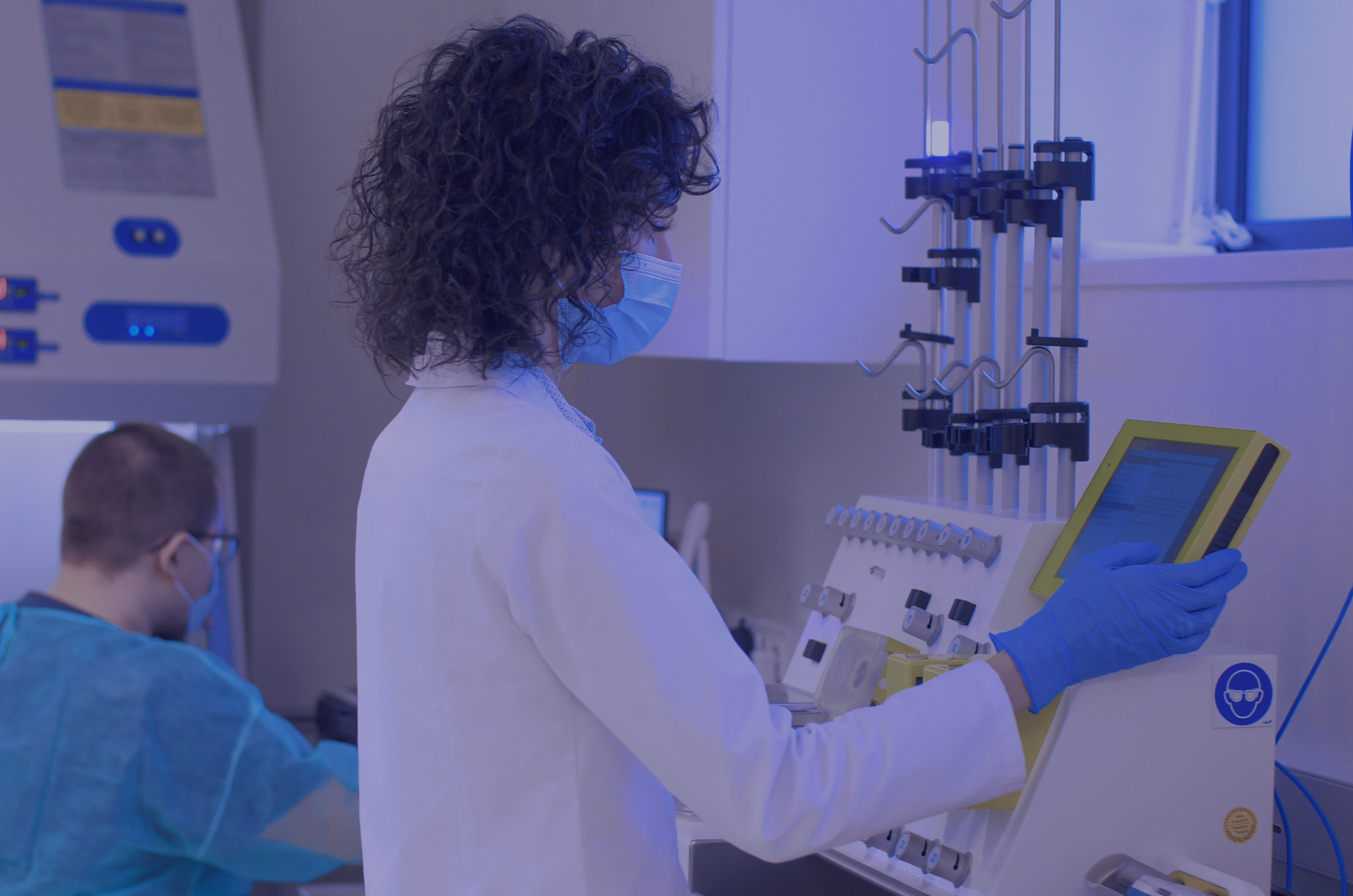Take the first step toward assessing your fertility. Know your ovarian reserve before it’s too late.


AMH ovarian reserve assessment
at Gyncentrum

AMH test is one of the first and basic tests performed in the diagnosis of female fertility. Perform it, both when you want to prophylactically check the state of your ovarian reserve and protect yourself for the future, and when you are trying unsuccessfully with your partner to have a child.
Fill out the form and we’ll call you back,
to schedule an AMH test for you.
Who should do
AMH testing?
AMH test should be performed by a woman who:
- would like to postpone the decision about motherhood, and therefore would like to check “how much time she has left” to make this decision,
- has been trying unsuccessfully with her partner for a child for some time,
- has irregular periods.
Frequently asked questions
regarding AMH testing
The AMH test, or antimüllerian homon test, determines a woman’s ovarian reserve and thus assesses her fertility. Based on the result, a woman learns how much more or less time to get pregnant. AMH testing also helps diagnose polycystic ovary syndrome (PCOS) and premature cessation of ovarian function.
Anti-Müllerian hormone (AMH), or Müllerian-inhibiting substance (MIS) or Müllerian-inhibiting factor (MIF), is a glycoprotein produced by the gonads – Sertoli cells in the testis and granulosa cells (preantral and antral follicles) in the ovaries. The level of AMH hormone correlates with the number of egg cells. The more there are, the higher the concentration of the hormone, and vice versa – the fewer ova, the lower the AMH level on the test result.
The process of oocyte formation is a rather complicated process and has its beginning as early as fetal life. How it proceeds depends on a great many factors: environmental, genetic and hormonal. At the stage of embryonic development, the primary germ cells undergo numerous divisions, increasing in number in the process. This is the time when the number of female sex cells increases instead of decreasing – the only time in a woman’s entire life. It is believed that around the 4th month of pregnancy the cells are approx. 7 million. However, by the 7th month, as a result of apoptosis (cell death) occurring, their number drops to 2 million and reduces further! With the onset of the first menstrual period, when the girl is 13-16 years old, the ovarian reserve already counts only 400 thousand cells. The entire period of a woman’s fertility, that is, from the onset of the first menstrual period until the onset of menopause, is associated with a slow decline in the number of egg cells.
The gradual shrinkage of the oocyte supply is a completely natural phenomenon that we cannot counteract. However, AMH testing, and other tests that assess female fertility, allow us to control this process. This, in turn, creates the possibility of conscious parenthood and the beginning of efforts to have a child at the most optimal moment.
There are also an increasing number of hormonal preparations available on the market, with the help of which we can stimulate the ovaries to ovulate. The same goal will be achieved by injecting them with platelet-rich plasma – a procedure that is increasingly popular among patients. In addition, a woman can safeguard her fertility by freezing oocytes and using them later in an IVF procedure.
AMH test is worth doing in the following situations :
- when we want to check our reproductive potential
- when you and your partner have been trying unsuccessfully to have a child for a long time
- when we want to postpone the decision about motherhood
- when we have irregular periods
The patient comes to the facility by appointment and gives a small blood sample – just as for a standard CBC. She can perform the test at any phase of her cycle, including while taking hormonal contraception and hormone therapy.
To determine the level of antimüllerian hormone, a small sample of the patient’s blood is used. It is taken in the same way as for a normal blood count. The test is therefore completely painless.
AMH standards are age-dependent, as the hormone levels naturally decline with age. The level of AMH hormone in given age ranges should be:
20-24 years 1.52 – 9.95 ng/ml
25-29 years 1.20 – 9.05 ng/ml
30-34 years 0.71 – 7.59 ng/ml
35-39 years 0.41 – 6.96 ng/ml
40-44 years 0.06 – 4.44 ng/ml
45-50 years 0.01 – 1.79 ng/ml
Women with PCOS 2.41 – 17.1 ng/ml
Low ovarian reserve does not doom the chances of getting pregnant. There are times when a woman has a low ovarian reserve and still manages to live to see offspring. Sometimes, however, she needs help from an infertility clinic to become a mother.
The cost of the AMH test (ovarian reserve assessment) at the Gyncentrum clinic is PLN 186. You can find a price list for other tests offered at the Gyncentrum clinic here.
Low ovarian reserve is most often indicative of premature cessation of ovarian function. (Premature ovarian failure – POF). We speak of it when ovarian function ceases before the age of 40, the age considered standard for menopause in the Polish population.
Elevated AMH levels may suggest that a patient has polycystic ovary syndrome (PCOS). The condition is currently the most common endocrinopathy in women of reproductive age. It involves the presence of many tiny follicles in the ovaries. Menstrual disorders and amenorrheic cycles, hirsutism and acne can occur during the course of the disease. High levels of the hormone AMH are also characteristic of PCOS.
The results of scientific studies indicate that the chances of achieving an IVF pregnancy are higher in women with high levels of AMH compared to women with low levels of the hormone. There is a correlation between the percentage of correctly fertilized cells and the concentration of AMH hormone. Knowing the patient’s ovarian reserve, it is easier for the doctor to adjust the treatment method and predict the ovarian response to hormonal stimulation.


Check your fertility! 
Make an appointment for an AMH test at Gyncentrum.
Thank you for filling out the form
We will contact you shortly to schedule a convenient appointment.




